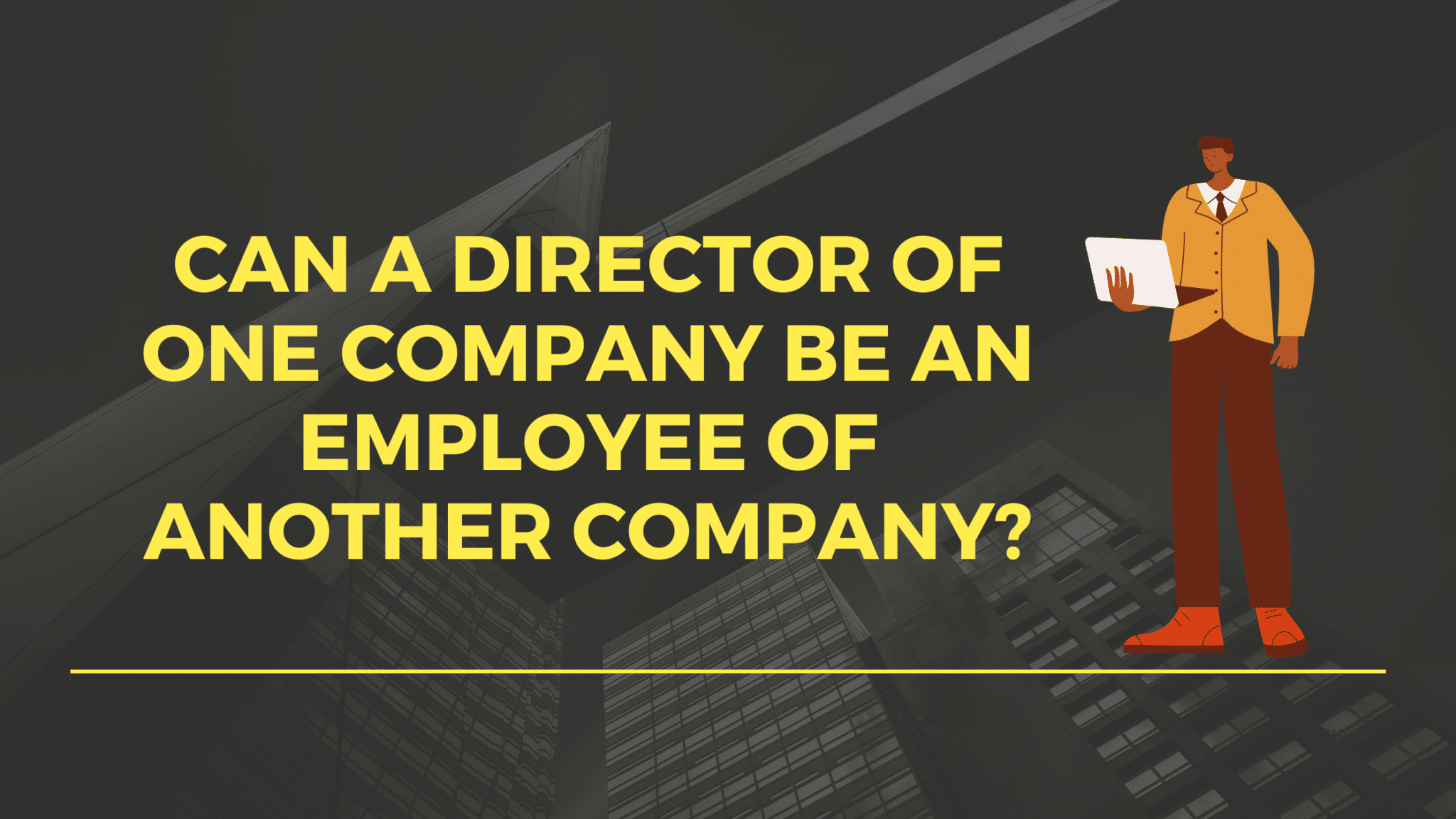Who is a Director?
A director is an individual elected by the company to exercise the statutory affairs of the company and he is the one who is responsible for the management of the company’s affairs. The scope of authority of the director is limited by the provisions of the companies act 2013 and clauses in articles of association of the company.
Director Types
Before digging deeper into the specifics of company directors, let’s understand the different types of directors that businesses usually have.
- Residential Director
- Independent Director
- Small shareholders Director
- Additional Director
- Alternate Director
- Shadow Director
- Nominee Director
In general, there are two types of directors: “executive” and “non-executive.”
An executive director may be the sole director of the enterprise, i.e., a person who has a significant personal interest in the enterprise as a high source of income for the duration of his working life.
The non-executive director, on the other hand, is a consultant who is not a boss and does not participate in day-to-day operations but rather participates in the company’s planning and policymaking exercises.
Roles and Functions of a Director
A company director is responsible for the administration, supervision and direction of affairs of the company. The director is responsible for the execution and implementation of the company’s policy.
A Director concentrates on the Efficient management of the company by acting in good faith to meet the company’s objectives and for the benefit of its members as a whole.
There are a number of roles that a director of a company can perform such as:
- Director acts as an agent on behalf of the company which is an artificial person to execute the decisions of the company.
- Director acts as an employee of the company if he is appointed in whole-time employment.
- Director acts as an officer of the company and is liable for penal provisions if any applicable to the company.
- Director acts as a trustee of the company, the company’s money and property as well.
Who is an employee?
An employee is someone who is hired by a company to do a specific job. The employer employs the employee as a result of the selection process. When the worker is considered to be the most qualified candidate for the job, he or she is hired.
What do the Companies Act 2013 say?
The Companies Act of 2013 is an act that regulates the incorporation of a company, the responsibilities of the company, directors, and the dissolution of the company. There is no provision that expressly states or prohibits a director from being an employee of another company.
A director should be a good strategic thinker who can analyze the various situations and thereby company’s existence and future may depend on the ability of a director to predict a situation.
In short, if one is an executive director, it is difficult to be an employee for obvious reasons, as it may be challenging and push human limits and ability.
It is easy to become an employee or a director in another company/organization when you are on the non-executive part of a directorship.
Possible Problems
Employment Contract
If the employment contract between Mr. X and RA Ltd. strictly prohibits Mr. A from taking up another employment during the term of his present employment, then he may face legal challenges prohibiting him from working in both places at the same time. He will have to choose one of the options.
Time constraints
He may not have the time to provide both jobs with his best. He will be able to focus fully on being an employee at RA Ltd. by meeting deadlines and other employment-related activities or he can focus on getting investments, approvals, etc. as a director in the start-up. Doing both is complicated.
Low efficiency
As said before, the director plays an important role in the company, from making decisions to accepting responsibility for the company in times of crisis. Working two jobs will reduce a person’s efficiency as a director of one company and an employee of the other.
Conflict of Interest, Breach of confidentiality, etc
When both business concerns are in the same field, there is a good chance that some business concerns will overlap. This could lead to a variety of issues, such as a potential conflict of interest/breach of confidentiality, among others.
Conclusion
The director is a trusted authority in a Company, but nothing prevents the director from working for another Company is also simple to determine a position in the company. The legislation does not prohibit it, and it can also be argued that it is ambiguous and that there is no explicit clause in this regard, nor is there any leading case against it, given that it could be the head of 20 companies at the same time. As a result, mere employment will have no effect on the company in which a person is a director.
To summarise, if you are the Managing Director, it is advised not to work elsewhere as for obvious reasons it can be challenging and stretch human limits and capacity.
Registration Arena is the expert hub that provides various services that are needed for the smooth functioning of your company. For more details call us at 8600544411 / 8600544422.







